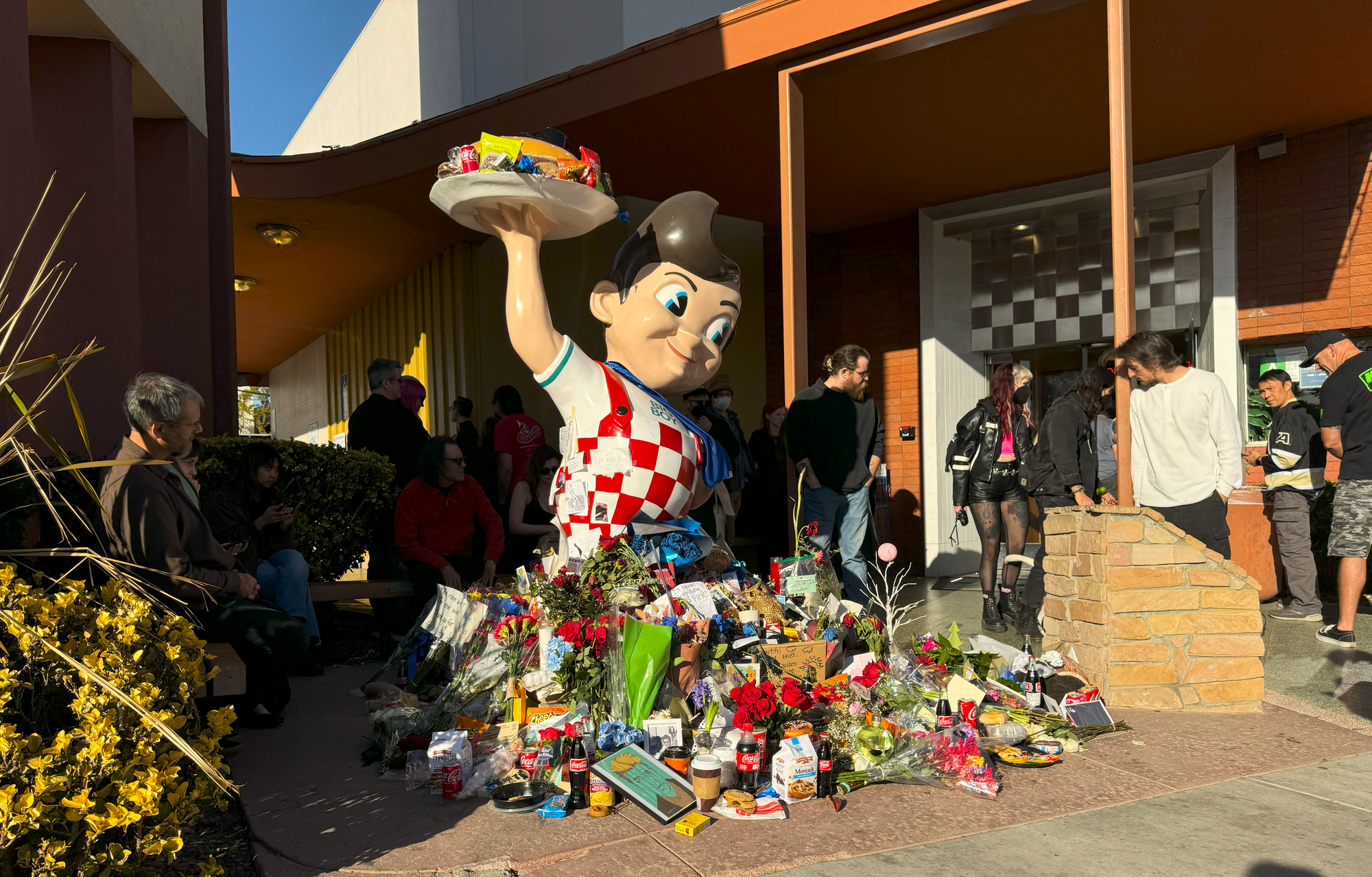Death Is Just A Change

David Lynch has gone on to whatever the next place is. I’m very sad about it; it came at a hard time for the city of Los Angeles, a place he dearly loved, and it’s hard not to think his change of consciousness, which we kinda knew was coming (“I knew a couple of weeks ago that he was failing. That it was going to be soon.”) was hastened by the fires. Made less peaceful because it followed his evacuation, because it was in the middle of a tragedy that will make the city permanently different. That there had to be a violence to it.
I love David Lynch, he’s a hero. I’ve written about him a lot over the years and I’m going to keep doing it. I cut a three hour podcast about what would be his last project, Twin Peaks: The Return. I think it’s his masterpiece, and I think it’s a film, and the greatest one made in the 21st century. It’s so rich, it’s so dense, so full of ideas that I could talk about forever. It’s also a meditation on death and it helped me more than anything else to process my grandma’s death from cancer, which happened in the middle of the show’s run. It helped him process the deaths of, what, like 80% of the cast of that thing? Half of them died before it came out and Harry Dean died right after.
He was philosophically tuned in to death, profoundly ready for it, and he knew time was running out. The show wouldn’t exist if he wasn’t. I think it’s one of the great miracles in the history of filmmaking that he was able to get it made, and not just get it made but make it the culmination of every idea he explored in his career. To write his own conclusion. Most people don’t get to do that. And I don’t think we’ll see anything like it again. Even during production it kept seeming like negotiations would fall apart, and in the streaming era it feels like people don’t even make television anymore. It feels too challenging and perfect and huge to even be television (which is because it’s not, it’s a film). How the fuck did he get away with this, I keep saying in his voice.
Today is David Lynch’s birthday. People have been keeping vigil en masse and making a shrine to him at Bob’s Big Boy in Toluca Lake, where he famously drank a milkshake every day at 2:30, a milkshake he would later correctly say was really bad for you. I’ve had time on my hands so I’ve just sat there for a few days thinking about him, how much he meant to me, and it’s been a powerful thing to see so many people who felt the same way and cried and hugged and smoked cigarettes, which the restaurant would never let happen if it was anybody else.
One of the beautiful things about David Lynch was that you could find your people through him, how a whole community was built up around him. I’ve had a lot of really nice conversations with people who get it and we can jump right into his whole deal, what it means, means to us. So many people going through grief, not for him per se but for their own families and the city, and getting to process it communally, in a way that feels healthy. His work changed people and it was a real blessing.
It’s because it came from the heart. He was a real empathetic, compassionate, same on both sides of the fence dude. He was one of those artists you just wanted to hug and say thank you too, because he helped you process how hard this life is.
I don’t have anything fancy to say about his work except that it helped me figure out this whole bullshit, that he taught me what it means to be an artist and make art. He made it accessible and doable, even if he was cranky and crotchety about it. Also meditation and being meditative in your own work. Meditation saves lives.
People who are a little bit older than me probably got into him through the original run of Twin Peaks. I got into him by checking out Mulholland Drive my first week of school. My roommates all accused me of just watching pornography but I got to have this whole private experience of thinking about the ideas in a movie for the first time, what movies can do, and knowing I would think about it forever. (“You will see me one more time if you do good. You’ll see me two more times if you do bad” is kinda my favorite line ever, sidebar.)
I have the rest of time to talk about things like dreams and archetypes and his perfectly unique conception of the American West. How good he was at finding faces that clearly feel things and have humanity, like Harry Dean or Laura Dern or Robert Forster. How funny but left-field powerful his little roles are in The Fabelmans or even Louie. How astonishing he was at sound design, how The Straight Story (also about death) is the greatest G-rated movie ever made, the value of stillness and repetition and having a routine you do every day, all these things, but I won’t. He’s my favorite filmmaker and I’ll get better thinking about it as I get older. I’ll just say this: at the memorial today, the sky was finally blue and it was a beautiful sunny day in Los Angeles.